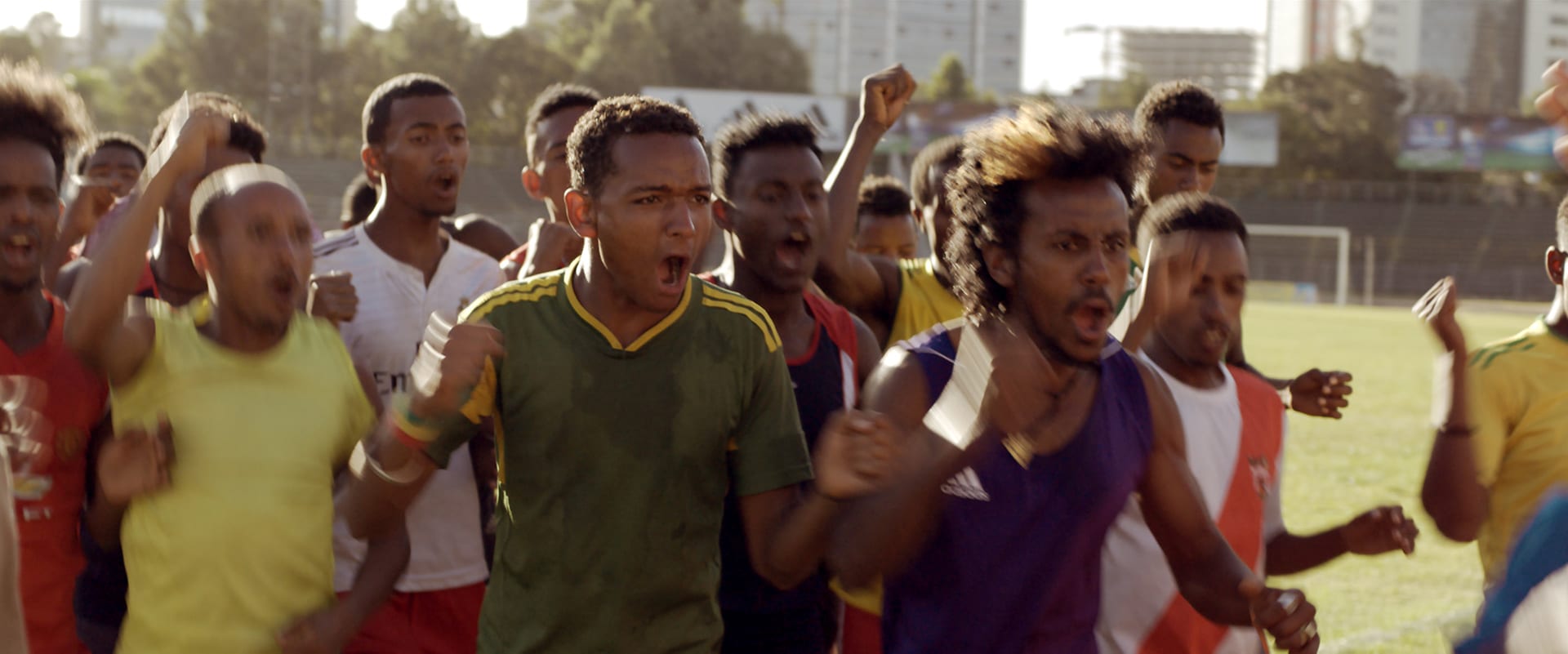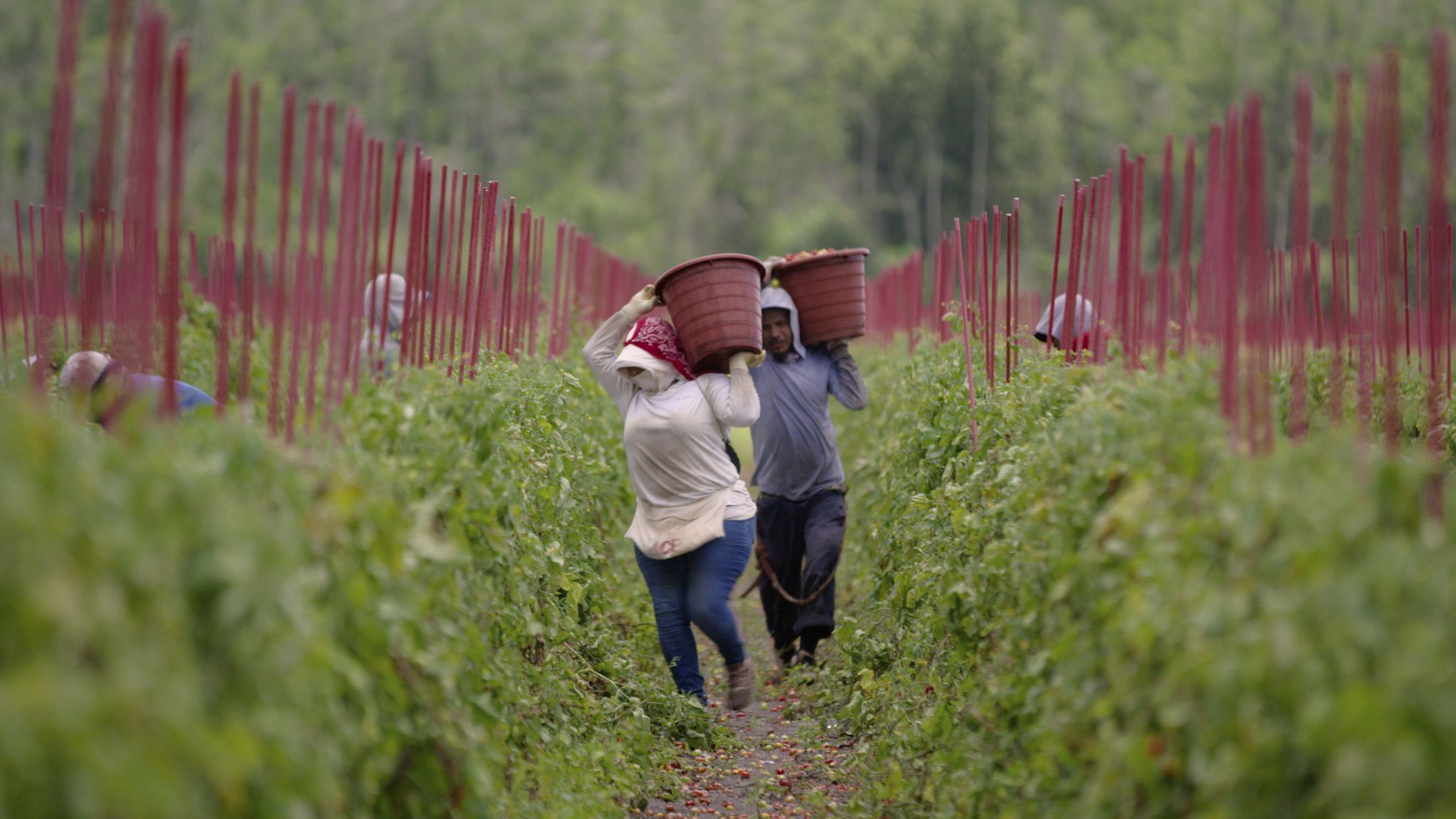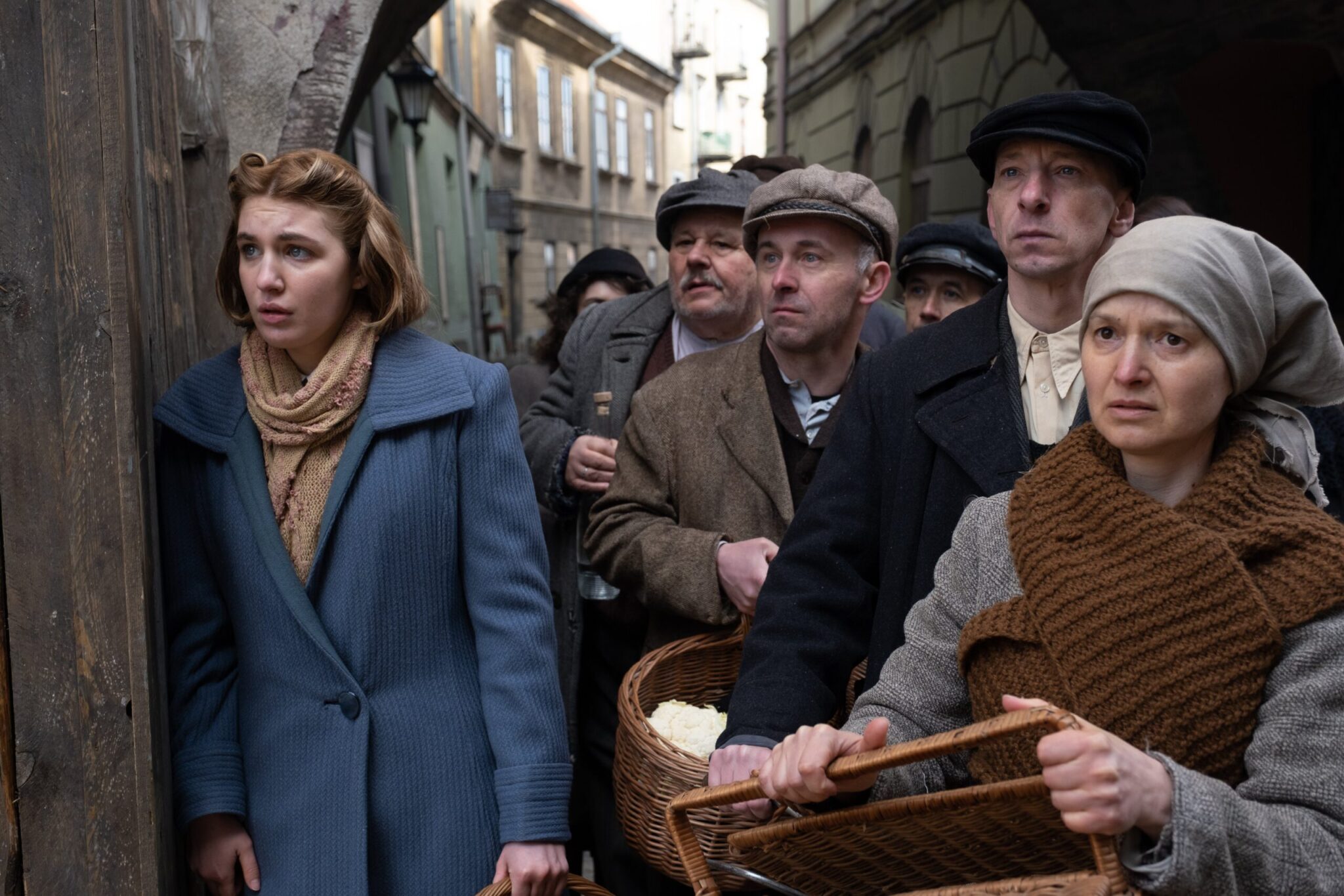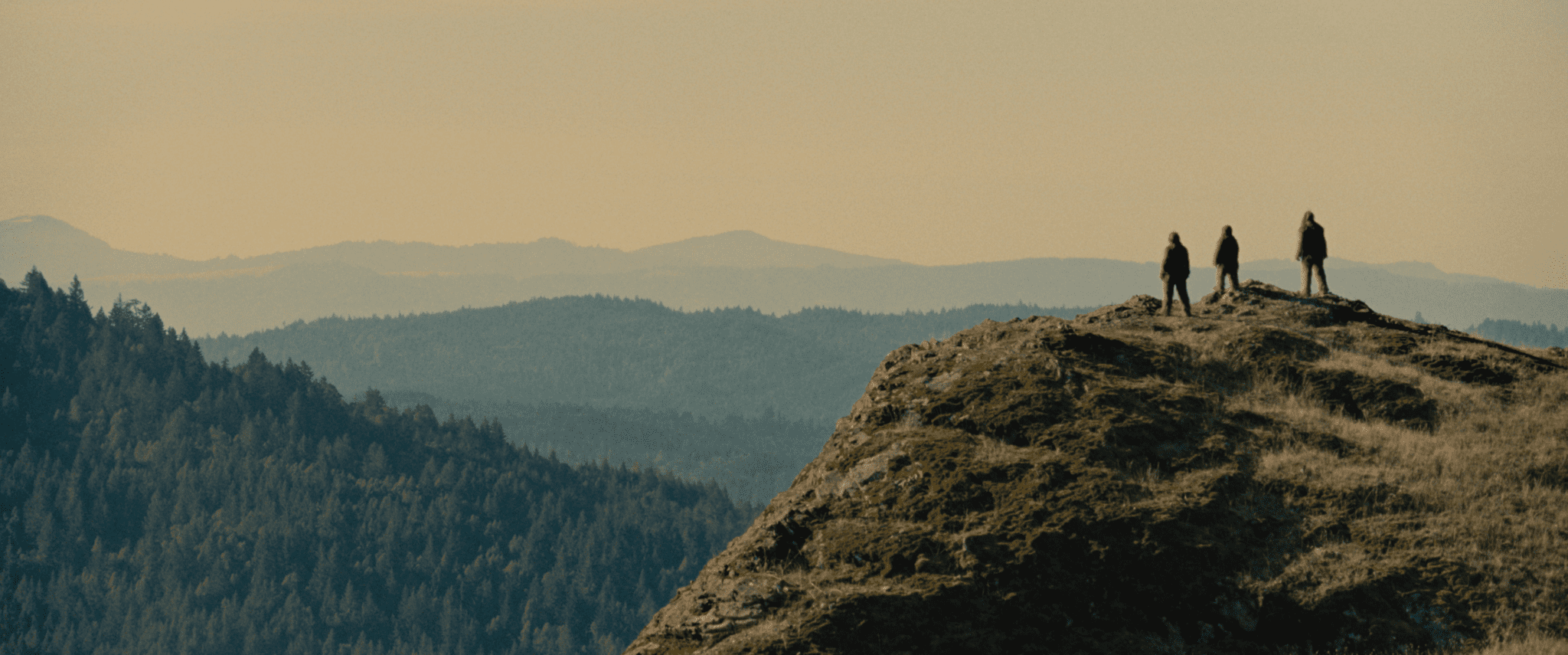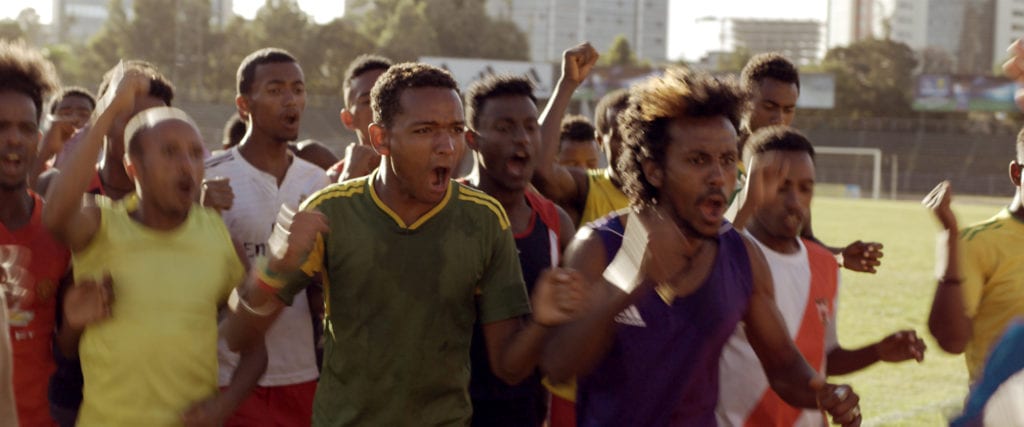
Directed and co-written by Jan Phillip Weil, Running Against the Wind is simply stunning. Running tells the story of two twelve-year-old boys who grew up together in a remote village in Ethiopia. A promising young runner, Abdi (Ashenafi Nigusu) dreams of one day reaching the Olympics and representing his country. Meanwhile, Solomon (Mikias Wolde) yearns to become a photographer. When a conflict causes the boys to part ways, Solomon disappears into the city of Addis Ababa while Solomon remains home. Ten years later, as Abdi is competing for the chance to live his dream, he heads to Addis Ababa in order to further train. When he discovers that Solomon is still alive, Abdi attempts to save his old friend by using his celebrity status to elevate his life. But can Solomon truly move on from his past or will it come to haunt him?
Set in the heart of Ethiopia, Running not only tells the story of two men. It also highlights the vast gap between two worlds. From urban to rural or rich to poor, Weil holds different environments and philosophies up against one another, emphasizing the gap between them through his use of visuals. Bleached by the heat of its dry, summer colours, Running often burns onscreen in the daylight. However, the cool of the night also provides its own brand of menace as neon lights give the scenes a terrifying glow. For many, there is no respite from their daily struggles and Weil rarely allows the viewer to become comfortable with either world.
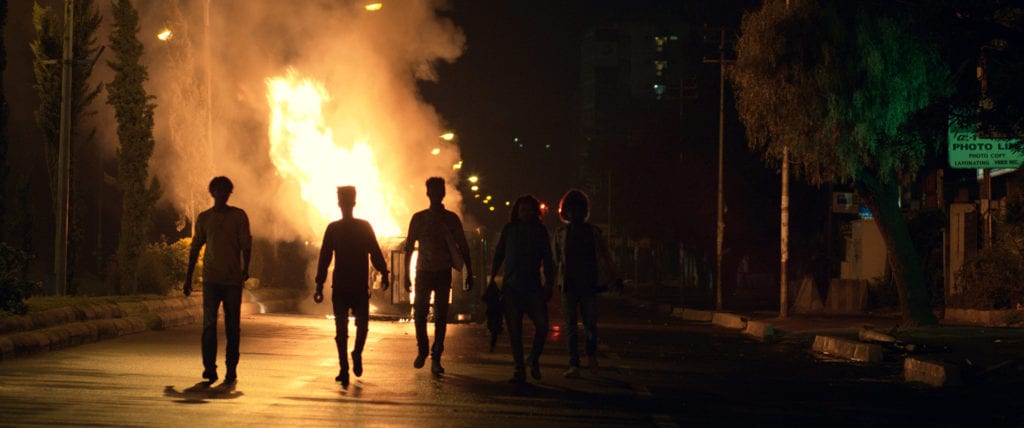
What?s more, the film also highlights the bizarre nature of fortune. Though both men desired success and possess incredible skills, their lives landed in very different situations. Whereas Abdi chose to remain home and develop his athletic abilities, Solomon?s attempt to make his own fortune as a photographer in the big city left him in abject poverty. As such, their parallel stories beg the question as to why these things happen? Why does one child find success and another suffer? Wisely, the film does not try to offer any particular solutions but allows these issues to linger. (Interestingly, Abdi does suggest that ?God has blessed him? but the film does so in a way that makes this feel more like a question than an answer.)
Interestingly, while it suggests that fame and financial success may be desirable, neither does the film glorify it either. Although Abdi may live in a world of celebrity status, there?s an emptiness that plagues him along the way. His journey has given him much but he has lost a part of his soul in the process. At the same time, even though many may view him as a loser, Solomon has also maintained a better sense of his identity despite the struggles he faces on a daily basis.
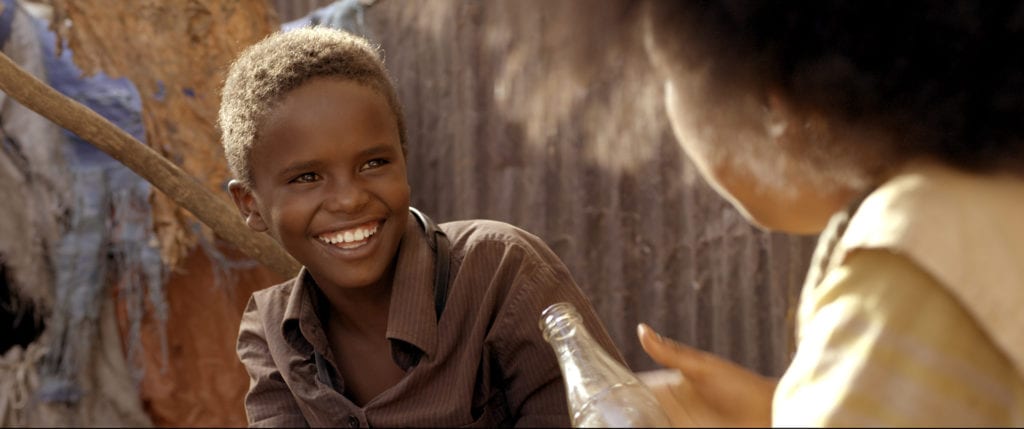
In this way, Running shows the value of both men and the talents that they have to contribute to the world. Despite the fact that both Abdi and Solomon struggle to break free from their upbringing, so too do each find ways to take positive steps for their future without ignoring their past. Despite the fact that they are shamed by others for their childhood, so too do they attempt to reconcile both worlds. As a photographer, Solomon wants his work to feel ?real? rather than simply make press photos. For Abdi, his love for his brother gives him the heart to help, despite the warnings of his coach who worries about his divided attention. In moments such as these, Running demonstrates that, even in a world divided by a horrible caste system, both worlds matter.
This is a film that shows hope exists.



As the credits roll, there?s little doubt as to why Ethiopia would send this as their submission to this year?s Oscars. With a heart of compassion and honest, Running Against the Wind is utterly compelling from start to finish. More importantly though, it spins a narrative that both celebrates and challenges the lives of those who continue to struggle just to make it through the day.
Running Against the Wind is available on VOD on Friday, July 9th, 2021.

